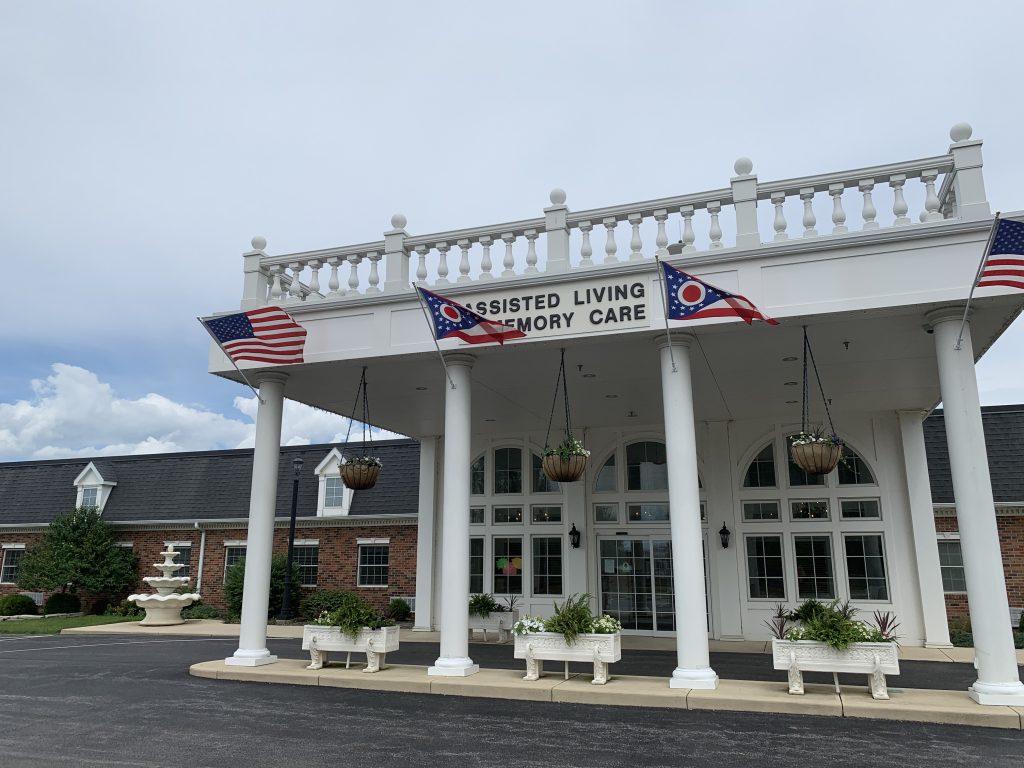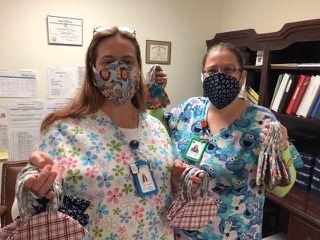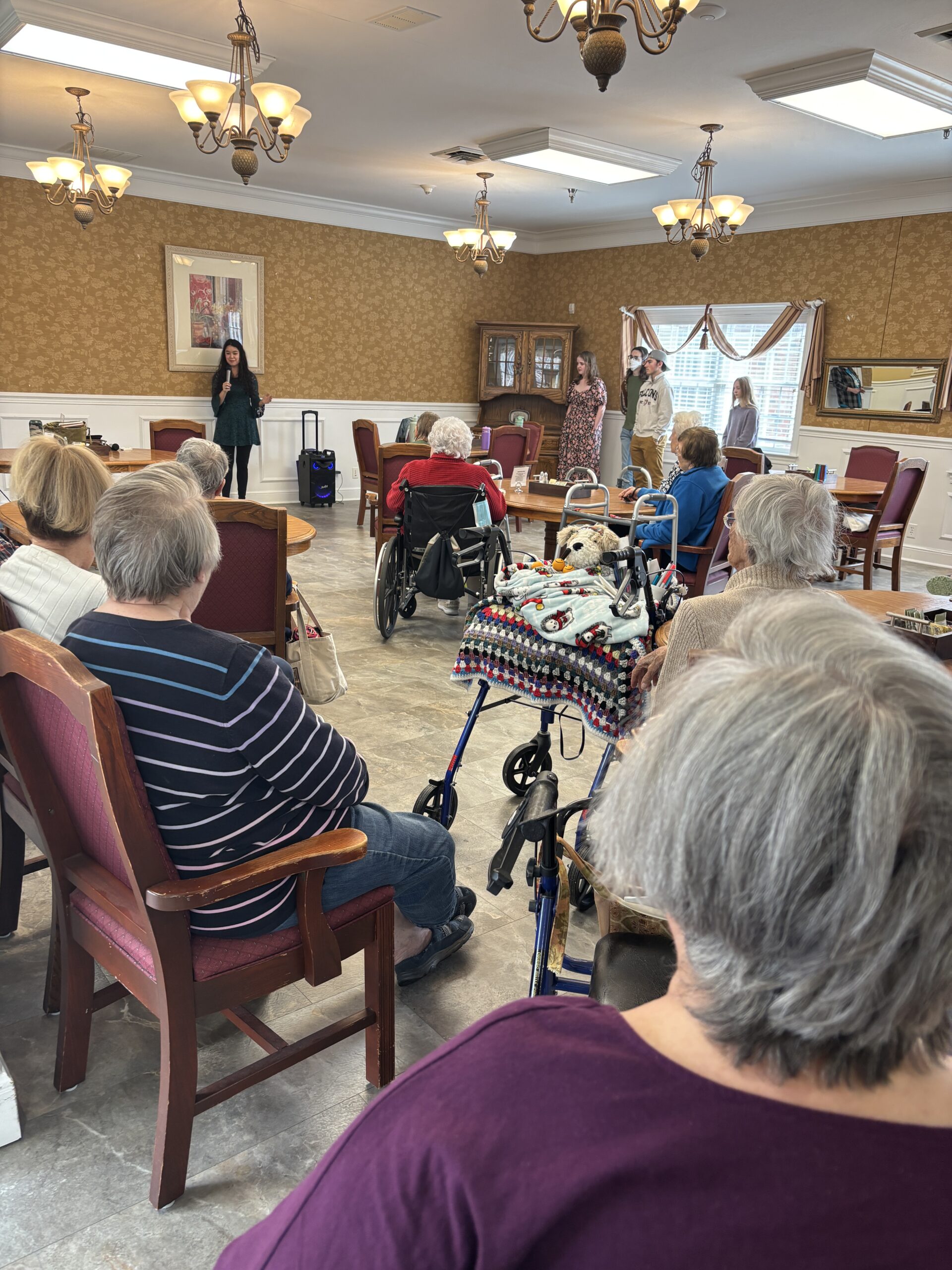BY ANDREW BAILEY
BG Independent News Correspondent
Older people are at a higher risk for severe health complications from COVID-19, a danger that Mark Manley, co-owner of Heritage Corner Health Care Campus in Bowling Green, knows all too well.
Manley and his wife, Debra, have been caring for older people in their assisted living facility since 1992, with Mark himself being the fifth generation of his family to be in the industry, he said.
Manley has experienced tornadoes, blizzards and power outages that lasted for days. None of that prepared him for the coronavirus pandemic. That instills fear like nothing else.
“In 1978, I was operating a 50-bed nursing home in Carey, Ohio during the Great Blizzard. That problem was, you woke up with six feet of snow on the ground and you dealt with it with what you had,” Manley said. “This thing is different because it was an anticipation of what could happen. It allowed you to get afraid because we didn’t know what we were dealing with.”

The anticipation and fear for Manley began in January, when the first U.S. case of COVID-19 in Washington State was reported.
The looming threat was a sign to start preparing. Manley began stocking up on face masks, sanitization equipment and other necessities right away.
“In trying to anticipate that, I was able to do a lot of shopping. They were in short supply already, but I was able to secure enough that we felt somewhat comfortable,” he said.
But it was the unknowns of the virus that caused extra stress.
“When the governor shut down the economy, we didn’t know if that would flatten the curve or not. It was a good call, but we were still concerned,” he said.
And when the damage caused to the economy led to gradual reopening, Manley saw this as a double-edged sword, with negatives of the decision hitting the healthcare industry.
“We’re trying to open back up the economy to ease financial pain, but then we’re weighing that against the pain of healthcare. I don’t know what the answer is, but I know we’re not doing a good job of it. We’re trying to open up an economy in the middle of a pandemic and trading dollars for lives.” he said. “The statistics show it. We have more people (with COVID-19) in Ohio than we did in April and May.”
According to the Ohio Department of Health, Ohio’s cumulative case count on May 1 was 23,176. On July 1, it was predicted to be 57,767, based on preliminary data. In Wood County, on May 1, the cumulative case count was 246. On July 1, it was 452.
Manley also sees these statistics and the ever-present danger they represent as a call to action for the community to ready itself for the influx of people come August.
BGSU has instituted multiple policies to keep students and faculty safe on campus when classes begin on Aug. 26. This includes requiring the completion of online safety training in accordance with health recommendations from the Center for Disease Control and Prevention and the Ohio Department of Health, daily self-administered wellness checks before stepping onto campus, face coverings, social distancing and a switch to virtual learning after Thanksgiving break.
But it’s up to the city to set expectations for students when they go into the community. On Tuesday (July 14), the Bowling Green City Council will be voting on a city ordinance to require masks inside public buildings and outside where social distancing cannot be maintained.
“That’s good for the community, I like that. And we shouldn’t wait until the students come back and then talk about it more. When the students come back, it’s too late,” Manley said. “If you have an ordinance, that’s easy. What isn’t easy is dealing with it after it’s affected the community.”
Manley sees the possible mask ordinance as a preventive measure to protect the at-risk population of Bowling Green.
“Bowling Green is in a bit of a unique situation,” he said. “I heard Denise Niese, director of the (Wood County) Senior Center say, ’16 percent of Bowling Green is people over 60.’ That’s a pretty sizeable population to be toying with their health.”
At Heritage, the clientele’s health is of the utmost concern. Currently, the facility has 50 residents, with an average age range of mid-70’s.
The older age of their patients makes caring for them in accordance to health and safety guidelines especially important, because each pair of sterilized gloves and temperature checks counts.
In more ways than protective wear and regular temperature checks though, the act of visiting a family member is not the same as it once was.
“People used to be able to come in and sit right next to their mom or dad or grandparent and give them a hug, kiss them on the cheek,” Manley said. “Now, getting that close just can’t happen.”
Currently, the visits must be scheduled in advance and are conducted outdoors, with the client and their visitor sitting six feet apart and wearing masks. No physical contact is allowed, and a staff member is present to ensure guidelines are being followed.
Manley understands how hard it is for both parties in the visits to not be able to hug one another, he said. “We’re in unusual times. It’s very difficult but you just can’t have that close of contact with your elderly relatives.”
Making sure clients are still able to socialize is important at Heritage, since chatting with others is often the best part of their day, Manley said. One of the primary ways residents used to chat with one another was during bustling mealtimes. Getting their food, sitting down at tables with their friends and talking about their children, grandchildren and much more was a surefire way to put smiles on their faces.
The largest mealtime was 32 people in one dining room. For a while, the dining rooms sat empty and meals were delivered to each client’s room. But the dining rooms are slowly beginning to open back up. Two people to a table and six feet apart is the rule now.
But for the period of time when clients were eating in their rooms, they felt isolation, Manley said.
Despite having private restrooms and a living space big enough to comfortably move around in, the isolation was and is taxing on the clients.
Manley has seen pushback on the various changes Heritage has made, from both clientele and their families.
“It’s hard on everyone,” he said. “People just want to hug their family. It’s not the same over FaceTime or Zoom.”
Even though the safety measures make things difficult for everyone involved, they’re requirements that must be followed to the letter, because one misstep can endanger lives.
The pandemic has been hard on Manley as well. Heritage has experienced financial damage due to the cost of extra precautions like still paying employees after sending them home for a cough or headache.

infection control, showing off their homemade masks.
(Photo provided)
But putting an employee on unpaid leave is not an option, Manley said, because, “all these external factors are out of our control. I’m not going to hold them responsible for that.”
And a pandemic is the last time Manley expects someone to put an older relative or friend in an assisted living facility. He hasn’t had any new clients since the pandemic began, but if he does, even dropping off a loved one is a different experience.
The new client has to be dropped off at the front door, then Manley or another staff member will take them inside, orient them and show them to their room. But because the new client has been outside the facility, they have to be quarantined for 14 days.
Manley can control what happens inside Heritage and the health precautions they follow. What people do out in the community is beyond his control, and their actions can have ramifications on Heritage.
“I don’t understand why people can’t wear masks. It’s easy and it’s important,” he said. “When people don’t take the proper measures while out and about it only prolongs the situation and frankly, it’s offensive.”
Much of his clientele has lived through The Great Depression, wars and other events that have greatly impacted lives, “yet people can’t be bothered to put on a mask while they’re at the grocery store,” he said.
This negligence is ensuring a second wave of the coronavirus, which is why he is hopeful the Bowling Green City Council will pass the mask ordinance.
“I feel sorry for people who have seen social activities and simple errands upended but being safe should be a priority,” he said. “This is far from over, so we need to do everything we can to make it through this.”


